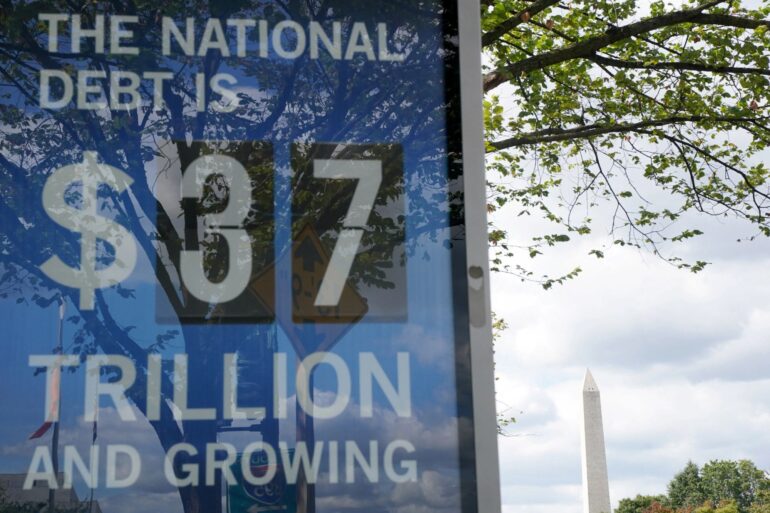🔴 Website 👉 https://u-s-news.com/
Telegram 👉 https://t.me/usnewscom_channel
As Washington stumbles through yet another government shutdown, we’re hearing the usual chorus of panic: Headlines warn of catastrophe and politicians point fingers.
But in reality, shutdowns are just noisy political theater.
They rarely cut government spending, they don’t rein in the debt, and they don’t force lawmakers to make the tough choices our nation desperately needs.
All they accomplish is distraction — masking the far greater debt crisis Congress is refusing to address.
The United States’ publicly held debt, meaning the money Washington has borrowed from credit markets, exceeds $30 trillion — almost the size of the entire US economy and continuing to grow.
That’s more than $230,000 per household, the amount of a mortgage with no house to show for it.
Interest payments are exploding, already exceeding some of the biggest federal budget items, including defense and Medicare.
Every dollar we borrow today piles new burdens onto tomorrow’s taxpayers and inches us closer to a full-blown fiscal crisis.
The shutdown fight may grab media attention, but the real crisis is what’s happening when government is open for business.
Let’s be clear: A shutdown doesn’t mean the government disappears.
Social Security checks still go out, troops stay on duty; it’s mostly parks and federal offices that close.
And it’s temporary. Once a shutdown ends, federal employees receive back pay.
In other words, there are no taxpayer savings — just a costly pause in orderly government operations.
That’s why treating shutdowns as a serious tool for fiscal restraint is misguided. They may spotlight dysfunction, but they don’t fix it.
The one exception is that shutdowns shine a light on what’s non-essential.
That can strengthen the case for trimming government permanently, instead of pretending every program and office is indispensable.
Even so, the actual savings achieved by any such trims will be marginal.
The primary drivers of federal spending are on the mandatory side of the ledger: Boomer entitlements like Social Security and Medicare, along with rising health care costs fueled in large part by Washington playing an outsized role in health care markets.
The immediate consequence is slower economic growth, leaving Americans with fewer opportunities to earn more, to afford daily necessities, and to invest in their families’ futures.
Rising debt also puts pressure on the Federal Reserve.
Without entitlement reform, lawmakers may rely on rate cuts to help finance deficits, risking inflation — and spooking bondholders, who could demand even higher interest rates to protect themselves from Washington inflating away the value of their assets.
That’s the genuine “shutdown” Americans should worry about: A fiscal shutdown, when debt, interest costs and unsustainable entitlement promises combine to overwhelm the economy.
Instead of obsessing over a government shutdown, Congress should focus on structural reforms to restrain runaway spending, especially on health care.
While Democrats now push to extend fraud-ridden and poorly targeted ObamaCare COVID credits in their entirety, Republicans in July enacted the most significant safety-net reforms in decades.
Their One Big Beautiful Bill Act, for all its flaws, added the first-ever federal work requirements in Medicaid and new measures to combat waste and fraud, with potential savings topping $900 billion.
Multiply those savings ten times over, and politicians could keep debt from soaring past 100% of GDP this decade — an achievement worth celebrating.
Of course, politicians avoid this conversation because it’s politically risky.
It’s easier to rile voters over closing the Washington Monument than to explain why entitlements need reform.
It’s easier to blame your political opponents for brinkmanship than to admit both parties have racked up staggering debts.
But every year of delay makes the eventual reckoning harsher.
Congress continues to spend money it doesn’t have, on promises it cannot keep, leaving taxpayers with the bill.
What cannot go on forever, will eventually stop.
If lawmakers can’t summon the courage to address the real debt crisis, the far worse shutdown — the day Washington can no longer finance its promises — will make today’s theatrics look like child’s play.
Romina Boccia is director of budget and entitlement policy at the libertarian Cato Institute.

